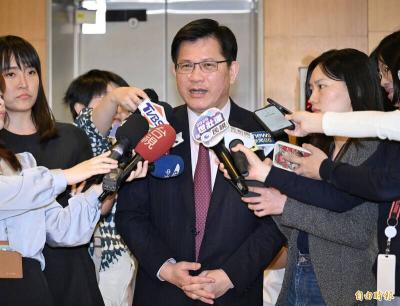The Ministry of Economic Affairs (MOEA) will soon release a position paper on the plan to sign an economic cooperation framework agreement (ECFA) with China to seek public support for the proposal, ministry sources said.
The paper will be presented in a question-and-answer format to expound on the necessity to strike such a deal with China and to clarify misunderstandings about the proposed pact’s content and effects, the sources said.
The paper will stresses that without such an agreement, the benefits of any tariff exemption or concession pacts that may be signed between the two sides would be offset by requests from other WTO members for the same treatment, the sources said.
Noting that the proposed cross-strait ECFA is a precursor to a regional trade agreement (RTA) or a free-trade agreement (FTA), the sources said the WTO has been encouraging its members to develop closer economic relations by signing such pacts to boost bilateral or multilateral trade.
WTO members who have signed RTAs or FTAs are allowed to mutually enjoy preferential trading terms or tariff treatment under those agreements without being subject to the restrictions of the most-favored-nation principle, the sources said.
If Taiwan signs a ECFA with China, then tariff concessions stipulated in the pact would only be applicable to the two signatories and no other WTO members would be able to ask for the same treatment, the sources said.
The major differences between an ECFA and an RTA/FTA mainly lie in the fact that an RTA/FTA tends to cover more topics and therefore takes more time to finalize negotiations, the sources said.

Taiwan would welcome the return of Honduras as a diplomatic ally if its next president decides to make such a move, Minister of Foreign Affairs Lin Chia-lung (林佳龍) said yesterday. “Of course, we would welcome Honduras if they want to restore diplomatic ties with Taiwan after their elections,” Lin said at a meeting of the legislature’s Foreign Affairs and National Defense Committee, when asked to comment on statements made by two of the three Honduran presidential candidates during the presidential campaign in the Central American country. Taiwan is paying close attention to the region as a whole in the wake of a

Chinese Nationalist Party (KMT) Chairman Eric Chu (朱立倫), spokeswoman Yang Chih-yu (楊智伃) and Legislator Hsieh Lung-chieh (謝龍介) would be summoned by police for questioning for leading an illegal assembly on Thursday evening last week, Minister of the Interior Liu Shyh-fang (劉世芳) said today. The three KMT officials led an assembly outside the Taipei City Prosecutors’ Office, a restricted area where public assembly is not allowed, protesting the questioning of several KMT staff and searches of KMT headquarters and offices in a recall petition forgery case. Chu, Yang and Hsieh are all suspected of contravening the Assembly and Parade Act (集會遊行法) by holding

President William Lai (賴清德) has appointed former vice president Chen Chien-jen (陳建仁) to attend the late Pope Francis’ funeral at the Vatican City on Saturday on his behalf, the Ministry of Foreign Affairs said today. The Holy See announced Francis’ funeral would take place on Saturday at 10am in St Peter’s Square. The ministry expressed condolences over Francis’ passing and said that Chen would represent Taiwan at the funeral and offer condolences in person. Taiwan and the Vatican have a long-standing and close diplomatic relationship, the ministry said. Both sides agreed to have Chen represent Taiwan at the funeral, given his Catholic identity and

Taiwan would welcome the return of Honduras as a diplomatic ally if the next president of that country decides to make such a move, Minister of Foreign Affairs Lin Chia-lung (林佳龍) said today. “We would welcome Honduras if they want to restore diplomatic ties with Taiwan after their elections,” Lin said during a legislative hearing. At the same time, Taiwan is paying close attention to the Central American region as a whole, in the wake of a visit there earlier this year by US Secretary of State Marco Rubio, Lin said. Rubio visited Panama, El Salvador, Costa Rica and Guatemala, during which he